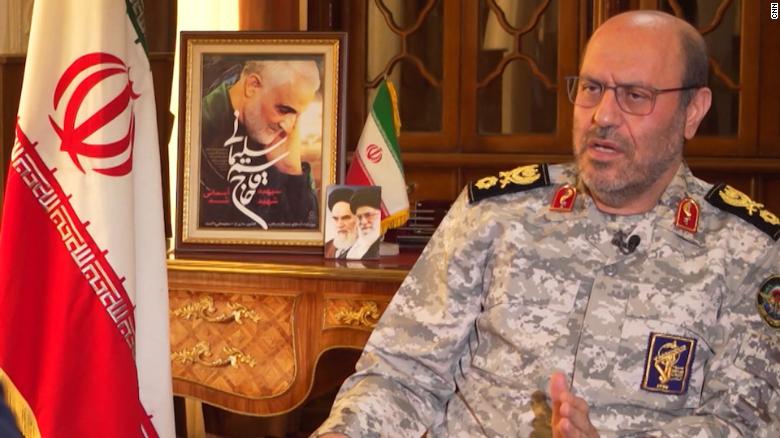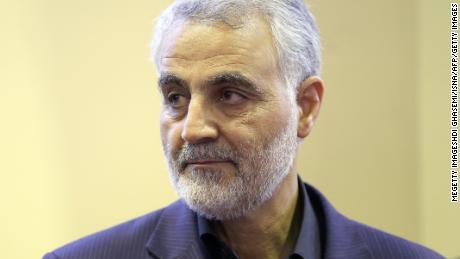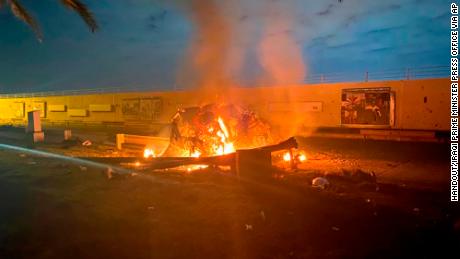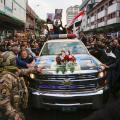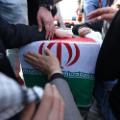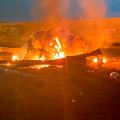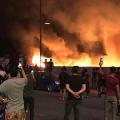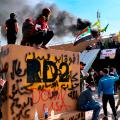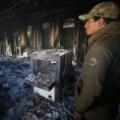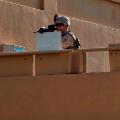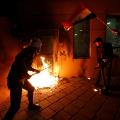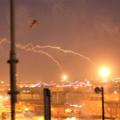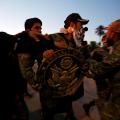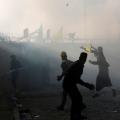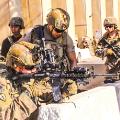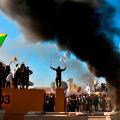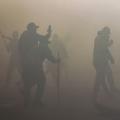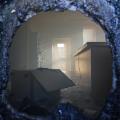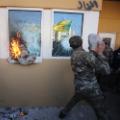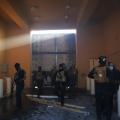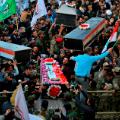Michael Ware is a former Time magazine and CNN correspondent who was based in Baghdad from 2003 to 2009.
(CNN)US President Donald Trump says he ordered the assassination on Friday of Iran's top general, Qasem Soleimani, "to stop a war." But that's simply not true.
Rather than stop a war, Trump just called Tehran's bluff and wagered all in with the single most daring American act in a conflict that's been raging for years.
No American president has ever taken the fight to Tehran like this. It's bold. It's provocative.
And it could set the Middle East aflame -- but it is most definitely not stopping a war.
A decades-long war
Why? Because the war between the United States of America and Iran has been underway for more than 40 years.
None of this is a secret. It's just that most Americans don't know they've been at war with Iran.
It's been out of their sight and, so, out of their minds.
Friday's drone strike that took out Soleimani is but merely one more bump on a well-worn, long, and winding road of a conflict that's been killing people for generations.
It is a war with an origin story that dates all the way back to 1953. That's when the Iranians believe America truly picked this fight.
For, in 1953, the US staged a coup d'etat in Iran to take down a popular, secular and nationalist prime minister, only to put an indulgent monarch, known as the Shah, in charge.
It's that American coup that led to the 1979 revolution that placed an ayatollah on the throne and the rule of the mullahs still in power today. The very same mullahs that the now-dead General Soleimani served.
When the Iranians revolted against the Shah, they overran the US Embassy in Tehran, taking dozens of American diplomats and Marines hostage, parading them on international television, as seen in the 2012 Hollywood movie "Argo."
That is when this war began. Not with this week's drone strike.
In 1983, Iran blew up a Marine barracks at the US Embassy in Beirut, killing dozens.
President Ronald Reagan abandoned Lebanon and it appeared Iran had chased the US out of the region.
That same year an Iraqi man called Abu Mahdi al-Muhandis car-bombed the US Embassy in Kuwait.
Though he escaped, with Iran's help, he was sentenced to death in absentia in Kuwait for the bombing. It's believed he then went on to help hijack passenger planes.
Western intelligence agencies also accuse him of involvement in the hijacking of a Kuwaiti airliner in 1984 and the attempted assassination of a Kuwaiti prince.
Do you want to know who was in the same convoy as General Soleimani on Friday when that drone missile struck? It was that same car-bomber, al-Muhandis.
Al-Muhandis, also known as Jamal Jafaar Mohammed, was twice elected to the democratic Iraqi Parliament the US created after the fall of the dictator Saddam Hussein.
He was Soleimani's number one man in Iraq. In Parliament. Right under the noses of the US military.
It was CNN who revealed al-Muhandis' identity. At first, an unwitting US government did not believe CNN.
But when the US government checked, and confirmed the bomber of their embassy was, in fact, in parliament, al-Muhandis fled Baghdad for the border crossing to Iran.
Al-Muhandis was there to greet Soleimani on Friday at Baghdad airport in Iraq -- a country the Iranian general virtually ran and controlled.
Soleimani's plane had just landed and he was with al-Muhandis in the convoy leaving the airport when the drone struck, killing them both.
A killer, but not a terrorist
Make no mistake, Soleimani was a killer. A calculating, patient, sophisticated killer. He was, most surely, plotting the deaths of many Americans.
But, despite what President Trump says, he was no terrorist. He sponsored them. He trained them. He armed them. But Soleimani was a military man to his bootstraps.
He fought in the horror of the 1980s Iran-Iraq war. The modern world's version of World War I; chemical gas attacks, suicidal human wave assaults, and a bloodletting we should hope the world never sees again.
Soleimani rose up the ranks of the military until he came to head, arguably, the most elite special forces outfit in the region, if not the world, called the Quds Force, which translates as the Jerusalem Force.
Iran has two armies, navies and air forces. One, to protect the country. The other, the Iranian Revolutionary Guards Force (IRGC), to protect the country's religious revolution.
And among the IRGC the Quds are the elite of the elite. Its members speak multiple languages.
They are spies, soldiers and technical experts. In Western terms, they are a hybrid of Green Berets, SAS commandos and Delta Force operators all fused into one.
And Soleimani was their commander. For more than 20 years.
And he ran rings around all of us: Americans, Arabs, Israelis, Brits.
Let us be very, very clear: this man was opposed to America and absolutely everything it stands for.
He ached to destroy Israel itself, to take it out of existence, and he was opposed to the current balance of power in the Middle East.
His entire life was devoted to bringing all of it, and us, down.
If you doubt Soleimani's significance, his very assassination should tell you differently.
Washington understood his value, that is why President Trump ordered the drone strike.
Soleimani did more to shape then re-shape the region than any king or prince or sultan or president or prime minister.
The man, quite simply, was a force of history.
He just wasn't on our side.
Will his assassination alter Iran's strategic ambitions? No.
Will it slow them down? Maybe.
